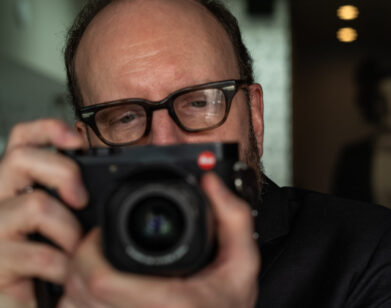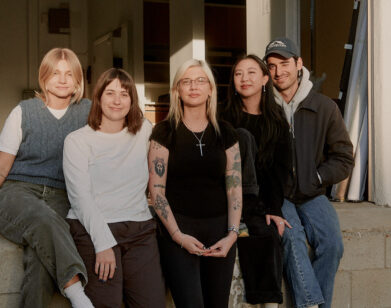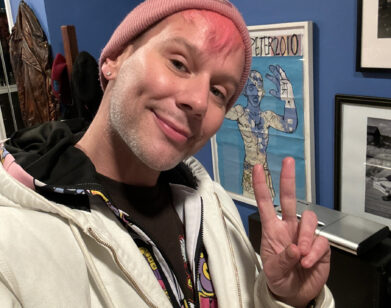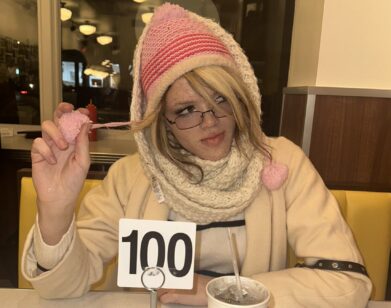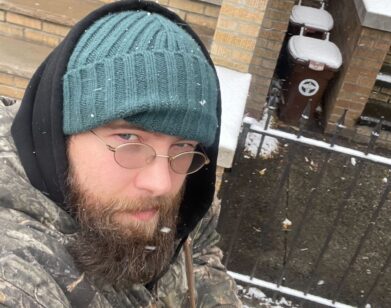Cynthia D’Aprix Sweeney’s Million Dollar Baby
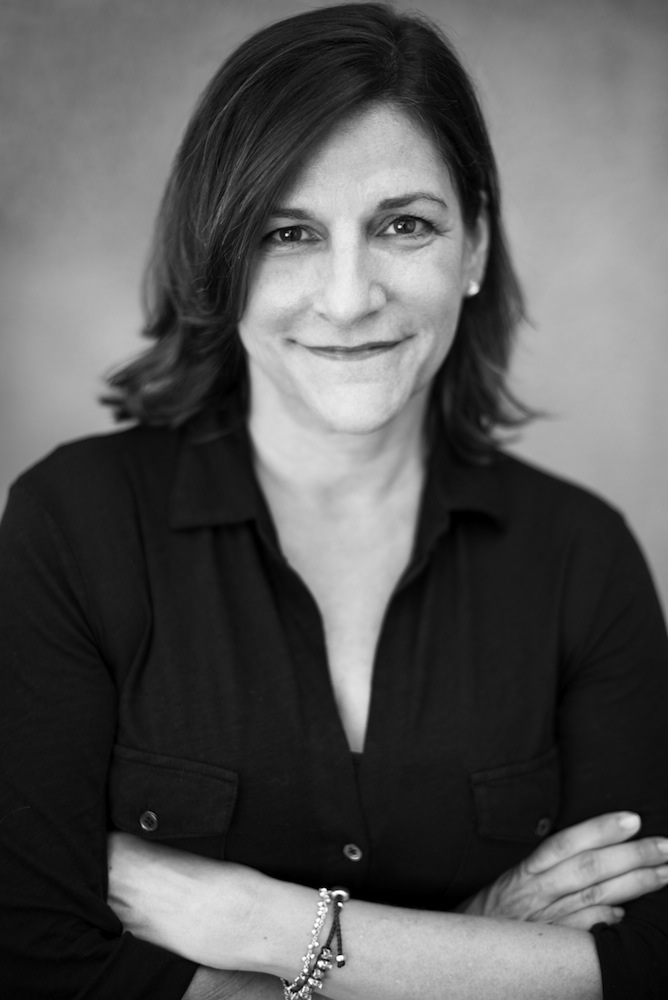
ABOVE: CYNTHIA D’APRIX SWEENEY. PHOTO COURTEY OF LISA WHITEMAN.
Cynthia D’Aprix Sweeney wrote most of her debut novel, The Nest, while an MFA student at Bennington College in Vermont. Shortly afterwards, she sold it for seven figures to the Harper Collins imprint Ecco. Sweeney, however, is not your typical first time novelist; rather she is in her mid-50s and already had a career in marketing. Raised in Rochester, New York, she is now based in L.A. with her husband Mike, the head writer for Conan on TBS. The couple’s two sons are both in college.
Out today, The Nest is a warm, lived-in, and often hilarious novel about Melody, Beatrice, Jack, and Leo Plumb, four dysfunctional siblings living in New York. When their trust fund is jeopardized, the Plumbs have to face up to the reality of their lives and each other.
JEFF VASISHTA: I know you currently live in L.A. but The Nest feels like it could only have been written by a Brooklyn-ite.
CYNTHIA D’APRIX SWEENEY: I moved to New York City six weeks after graduating from college and lived there for 27 years before we relocated to Los Angeles in 2009 because of my husband’s job. We moved to Park Slope after we had our second kid. Our last house was in Prospect Heights and served as the model, roughly, for Stephanie’s house in the novel.
VASISHTA: What made you finally decide to do an MFA in your 50s?
SWEENEY: Getting my MFA was my mid-life crisis—cheaper than a dumb sports car and marginally less stressful than an affair—and also a reaction to relocating to California. My kids were in middle school and high school and I suddenly had a lot of time on my hands in a city where I didn’t know a lot of people. The work I’d always done—freelance marketing and communications copywriting—was great when my kids were small and I needed a super flexible work situation, but I was ready for something more challenging and interesting. I’ve always been an avid reader of fiction and had started playing around with writing it, but in a half-assed, dithering kind of way. I wanted to either commit fully to writing fiction or exercise the demon and move on to something else. So the MFA program at Bennington was very much a rapid plunge into the deep-end—terrifying but exhilarating.
VASISHTA: They often say that agents and publishers don’t like novels about writing, but this is quite incestuous in that aspect. There’s a writer, Bea; a literary agent, Stephanie; and a literary journal, Paper Fibers. Was that a concern at all?
SWEENEY: To be honest, I’m not sure I even knew some of them existed until I’d written so much of the book that changing those things was impossible. When I felt I was nearing the end of the revisions and started to think about querying agents, everything you just mentioned hit me like a ton of bricks and I worried about it a lot—not to mention the fact that the book takes place in New York. I thought I was sunk because of all those things. I guess the lesson is you really do have to write for yourself and not worry about what people are saying you should or shouldn’t write.
VASISHTA: You seem so familiar with New York’s publishing world. Had you been flirting with it for a long time?
SWEENEY: I have always been obsessed with the New York literary world. I probably moved to New York because of The New Yorker, Dorothy Parker, E.B. White. I’ve always been keenly interested in New York publishing and I have so many friends who work in publishing. I mean, I lived in Park Slope! Half the parents at school pick-up are authors, journalists, agents, editors. So, yes, I’ve been flirting shamelessly with the New York publishing world since I was a teenager and I’m thrilled somebody finally noticed me standing in the corner wearing too-bright lipstick.
VASISHTA: Your husband is the head writer on The Tonight Show. Was he a sounding board for you?
SWEENEY: He was super encouraging and pushed me the hardest to do the MFA program. He’s a voracious reader, but reads a lot of non-fiction. He did read everything but his feedback was very factual. He would say, “I love it, but there’s just this one thing: You have a drug dealer using a beeper and I really don’t think drug dealers use beepers anymore.”
VASISHTA: Leo is obviously the most charismatic and despicable character in the novel—the ex-wife, the rehab, the affairs, totally self-absorbed. But like all his family members, I kept hoping he’d redeem himself because you showed him when he was younger and helped out his sisters. Where did his character come from?
SWEENEY: I’ve worked for and with a lot of Leos in my life—met plenty of them at parties in Manhattan and Brooklyn. Some were my neighbors and fellow school parents. Leo didn’t take much imagination. My agent, Henry Dunow, deserves a lot of credit for Leo in his current iteration. In the draft Henry originally read, Leo was more of a cipher. Henry really pushed me to get Leo on the page as someone who was more than just a scoundrel, but a person at war with himself. The book became much better as a result.
VASISHTA: From feeling like an outsider you’ve gone to the very epicenter of book publishing. Has there been a specific “pinch-me” moment?
SWEENEY: At one point during the bidding process, one of the editors [from Harper Collins] said to me, “Canada’s involved, London’s involved. Everyone’s putting money in the pot. We were here first and we haven’t let up and I hope that shows you how much we want the book.” It really resonated with me. The money at that point was so far beyond anything that I’d ever imagined. I think I said at one point to my agent, “Henry, I think I’m on a runaway train and I want to pull the emergency break and just stop.” Honestly, it’s a bit scary. My job is to thank my publishers and repay their faith in me and hope lots of other people feel the same way that they did.
THE NEST IS OUT NOW.

